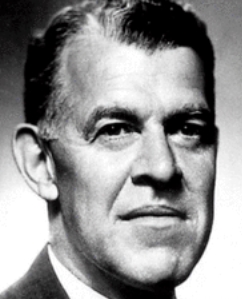Richard Cattell (surgeon)
Richard Cattell was a pioneering American surgeon known for his contributions to the field of pancreatic surgery. He is best remembered for developing the Cattell-Braasch maneuver, a surgical technique used to improve access to the retroperitoneal space.
Early Life and Education[edit | edit source]
Richard Cattell was born in City, State, in Year. He attended University where he earned his Bachelor of Science degree. He then went on to study medicine at Medical School, graduating with his MD in Year.
Medical Career[edit | edit source]
After completing his medical degree, Cattell undertook a residency in general surgery at Hospital Name. He quickly developed an interest in pancreatic surgery, an area that was relatively underdeveloped at the time. His innovative techniques and dedication to improving surgical outcomes earned him a reputation as a leading figure in the field.
Cattell-Braasch Maneuver[edit | edit source]
One of Cattell's most significant contributions to surgery is the Cattell-Braasch maneuver. This technique involves the mobilization of the duodenum and pancreas to provide better access to the retroperitoneal space. It is particularly useful in surgeries involving the aorta, inferior vena cava, and other major blood vessels.
Legacy[edit | edit source]
Richard Cattell's work has had a lasting impact on the field of surgery, particularly in the area of pancreatic surgery. His techniques continue to be taught in medical schools and used in operating rooms around the world. He has published numerous articles in leading medical journals and has been a mentor to many young surgeons.
Personal Life[edit | edit source]
Cattell was married to Spouse's Name and had number children. He was known for his dedication to his family and his passion for hobby or interest.
See Also[edit | edit source]
References[edit | edit source]
External Links[edit | edit source]
Search WikiMD
Ad.Tired of being Overweight? Try W8MD's physician weight loss program.
Semaglutide (Ozempic / Wegovy and Tirzepatide (Mounjaro / Zepbound) available.
Advertise on WikiMD
|
WikiMD's Wellness Encyclopedia |
| Let Food Be Thy Medicine Medicine Thy Food - Hippocrates |
Translate this page: - East Asian
中文,
日本,
한국어,
South Asian
हिन्दी,
தமிழ்,
తెలుగు,
Urdu,
ಕನ್ನಡ,
Southeast Asian
Indonesian,
Vietnamese,
Thai,
မြန်မာဘာသာ,
বাংলা
European
español,
Deutsch,
français,
Greek,
português do Brasil,
polski,
română,
русский,
Nederlands,
norsk,
svenska,
suomi,
Italian
Middle Eastern & African
عربى,
Turkish,
Persian,
Hebrew,
Afrikaans,
isiZulu,
Kiswahili,
Other
Bulgarian,
Hungarian,
Czech,
Swedish,
മലയാളം,
मराठी,
ਪੰਜਾਬੀ,
ગુજરાતી,
Portuguese,
Ukrainian
Medical Disclaimer: WikiMD is not a substitute for professional medical advice. The information on WikiMD is provided as an information resource only, may be incorrect, outdated or misleading, and is not to be used or relied on for any diagnostic or treatment purposes. Please consult your health care provider before making any healthcare decisions or for guidance about a specific medical condition. WikiMD expressly disclaims responsibility, and shall have no liability, for any damages, loss, injury, or liability whatsoever suffered as a result of your reliance on the information contained in this site. By visiting this site you agree to the foregoing terms and conditions, which may from time to time be changed or supplemented by WikiMD. If you do not agree to the foregoing terms and conditions, you should not enter or use this site. See full disclaimer.
Credits:Most images are courtesy of Wikimedia commons, and templates Wikipedia, licensed under CC BY SA or similar.
Contributors: Prab R. Tumpati, MD

